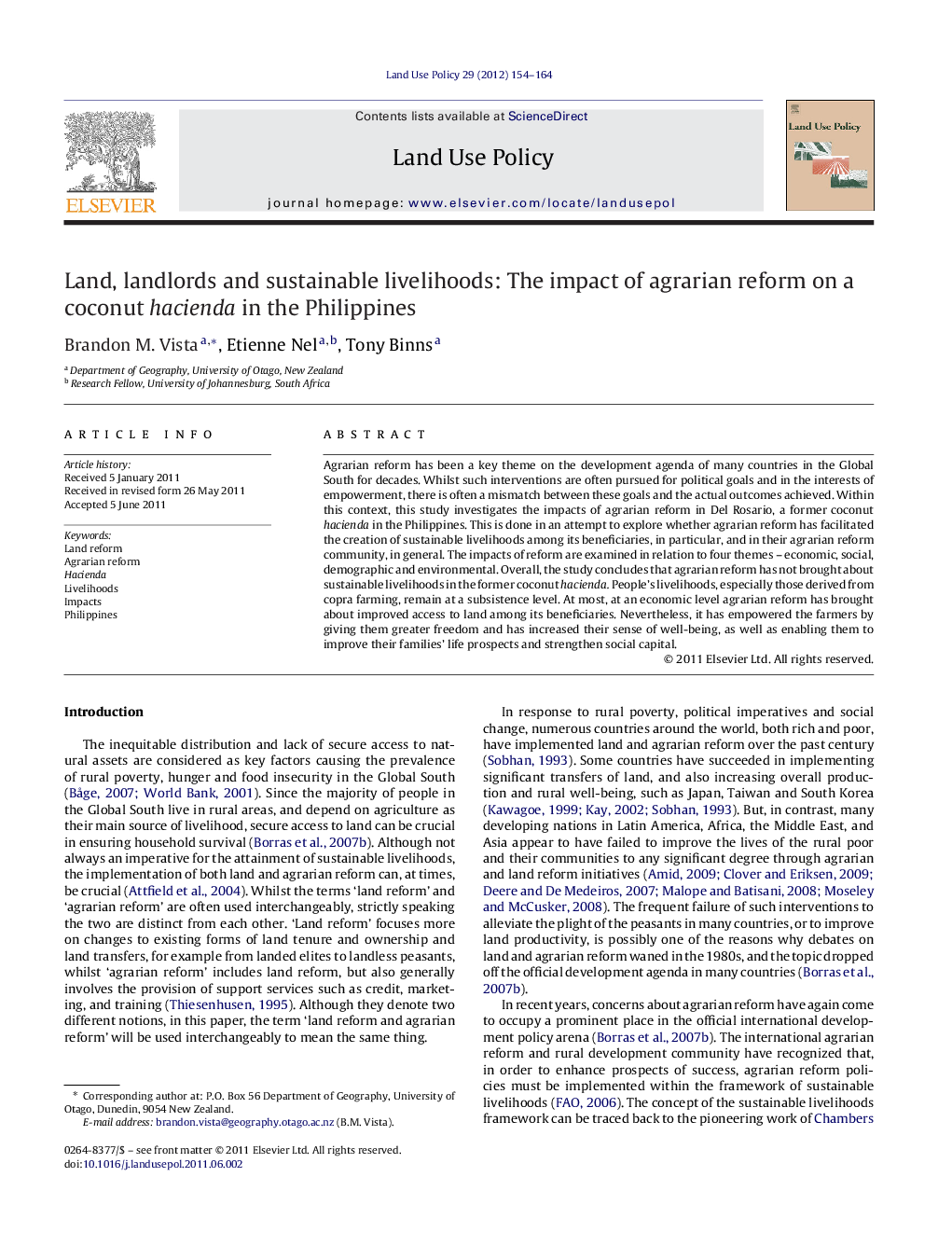| Article ID | Journal | Published Year | Pages | File Type |
|---|---|---|---|---|
| 93409 | Land Use Policy | 2012 | 11 Pages |
Agrarian reform has been a key theme on the development agenda of many countries in the Global South for decades. Whilst such interventions are often pursued for political goals and in the interests of empowerment, there is often a mismatch between these goals and the actual outcomes achieved. Within this context, this study investigates the impacts of agrarian reform in Del Rosario, a former coconut hacienda in the Philippines. This is done in an attempt to explore whether agrarian reform has facilitated the creation of sustainable livelihoods among its beneficiaries, in particular, and in their agrarian reform community, in general. The impacts of reform are examined in relation to four themes – economic, social, demographic and environmental. Overall, the study concludes that agrarian reform has not brought about sustainable livelihoods in the former coconut hacienda. People's livelihoods, especially those derived from copra farming, remain at a subsistence level. At most, at an economic level agrarian reform has brought about improved access to land among its beneficiaries. Nevertheless, it has empowered the farmers by giving them greater freedom and has increased their sense of well-being, as well as enabling them to improve their families’ life prospects and strengthen social capital.
• Land reform has a long and extensive history in the Philippines. • The case study indicates that land distribution has not necessarily led to significant improvement in rural livelihood in the case study examined. • Many beneficiaries remain at the subsistence level.
